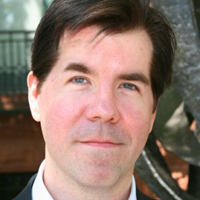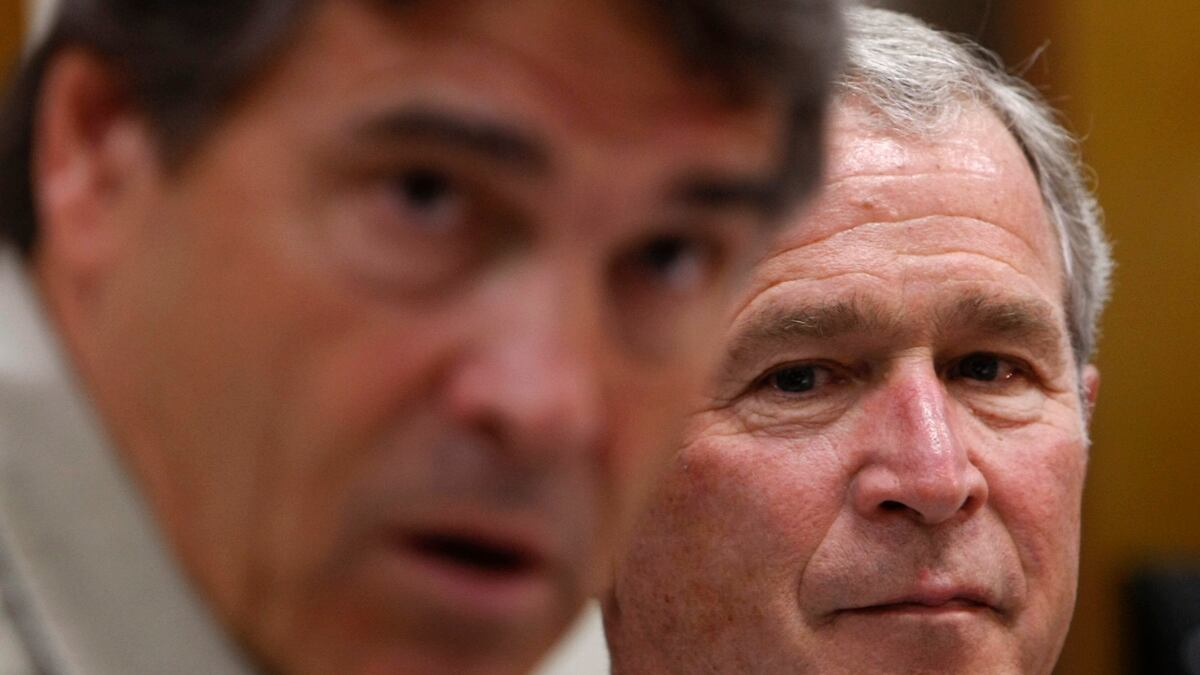Just because Karl Rove is behind a plot doesn’t necessarily mean it won’t work. That we’re still talking about the former Bush aide at all is a testament to his singular tenacity.
How has he done it? The man helped elect the Pelosi Congress—it was Rove who in 2006 was in charge of holding on to GOP majorities in the House and Senate. He helped elect Barack Obama—insisting that John McCain was the only “electable” Republican in 2008 and bad-mouthing most of the others running. His indispensable support of his boss' overspending and government bailouts even helped create the Tea Party, which has bedeviled Rove and other GOP establishment figures ever since.
And yet billionaire donors to the Republican Party seem oblivious to the record, handing Rove big, fat checks to fund his activities further. Perhaps this is because he is charming and witty, has a statistic for every occasion, never stops calling people until he gets what he wants, says all the right things about battling “them liberals,” and wallpapers himself across The Wall Street Journal’s editorial pages and Fox News Channel, where his words are rarely challenged. To his everlasting credit, Rove has truly lived up to his Bush-conferred nickname, “Turdblossom.” He can make any mess he's involved in still smell sweet.
His brazen and transparent attacks on a leader of his own party, Texas Gov. Rick Perry, may be the greatest test yet of Rove’s remarkable resilience. Some, in fact, are starting to question if we have at last reached “the moment.” Years from now, will we look back at the 2012 primary season as the time when Rove put on his Fonzie jacket, flashed a thumbs-up sign, and then—finally—jumped the shark?
Yes, at long last, the 2012 race is actually starting to get interesting.

For years, Rove has made it a hobby of sorts to deflate conservatives more popular with the base than he is. Like any good bully, he has tended to focus on easy targets, such as Sarah Palin and Senate candidate Christine O'Donnell, piling on them as if he were hoping for a time slot next to Al Sharpton on MSNBC. So far he has (mostly) gotten away with this.
Now he and his henchmen are undertaking their most serious gamble. Rick Perry managed to shine in Texas without Rove's permission, and now threatens to become the current Republican frontrunner without Rove’s blessing. This, Rove has decreed, must be stopped, even if his party is destroyed in the process.
The origins of the Rove grudge against Perry really matter only to a handful of people. Suffice it to say it stems from some decade-old feud over power and money. And Rove has lassoed the entire Bush family in on it. The former presidents Bush have made it a great point not to comment on the actions of their successors—Clinton and Obama, respectively. They think there is a nobility to staying out of the fray and not making things more difficult for the next commander in chief. Yet the Bushes have shown no compunction about doing just that to a fellow Republican and fellow Texan (though Perry is the only one of them actually born in the state).
While in the White House, Bush 2 and his aides regularly scoffed at Perry for reasons that were never fully clear, making fun of his syntax and intellectual prowess without any sense of irony. In 2010 the Bush family, along with Rove and Karen Hughes, undertook an unprecedented effort to kick him out of the governor’s chair, handing a crowbar to Texas Sen. Kay Bailey Hutchison, whom they judged more "electable." Perry walloped her in the GOP primary, then went on to win a historic third term in the general election by a double-digit margin. So much for electability.
But Rove is nothing if not persistent. Now he and his operatives seem to have something close to a war room against Perry, scrutinizing his every statement in an attempt to cut his young candidacy short. After Rove called Perry “unpresidential,” former Bush press secretary Tony “Ralph Malph” Fratto joined in—calling Perry, you guessed it, “unpresidential.” This was followed in quick succession by similar sentiments from a former Rove aide, Pete “Potsie” Wehner. Meanwhile, two “unnamed” Bush aides (wonder who they could be?) issued the following warning to The New York Times: “If you’re really trying to be the nominee and want to go the distance, you just don’t want the former president of the United States and his people working against you.” (Then again, that’s what the Bushes told Kay Bailey Hutchison.)
Whatever the rationale, this is truly a bizarre thing for the Bushies to do. Openly attacking a legitimate Republican contender used to be considered bad form, especially in the noblesse oblige world of Greenwich and Kennebunkport from which the Bushes actually hail. And it may finally sever the already tenuous link between the Bush era and the conservative base of the GOP.
The Bushes are usually more cautious than this, which means they must feel they have no other choice. A Perry victory would end whatever chokehold the Bushes still have on the GOP establishment. It would cut off many donors to Rove, Inc. Worse yet, Karl Rove and his compatriots simply cannot fathom the idea of having to sit on Fox News for four years defending the policies of the man who dared to cross them.
Perry’s response to all this has been clever and obvious: total silence. He has nothing to gain by stoking an intraparty war. And he need not worry about a bunch of operatives who took the last presidency they managed to a 13 percent approval rating. The former governor may also remember what happened to the Fonz after he jumped that shark. Though the show lingered on for a few more years, it was never quite the same.






